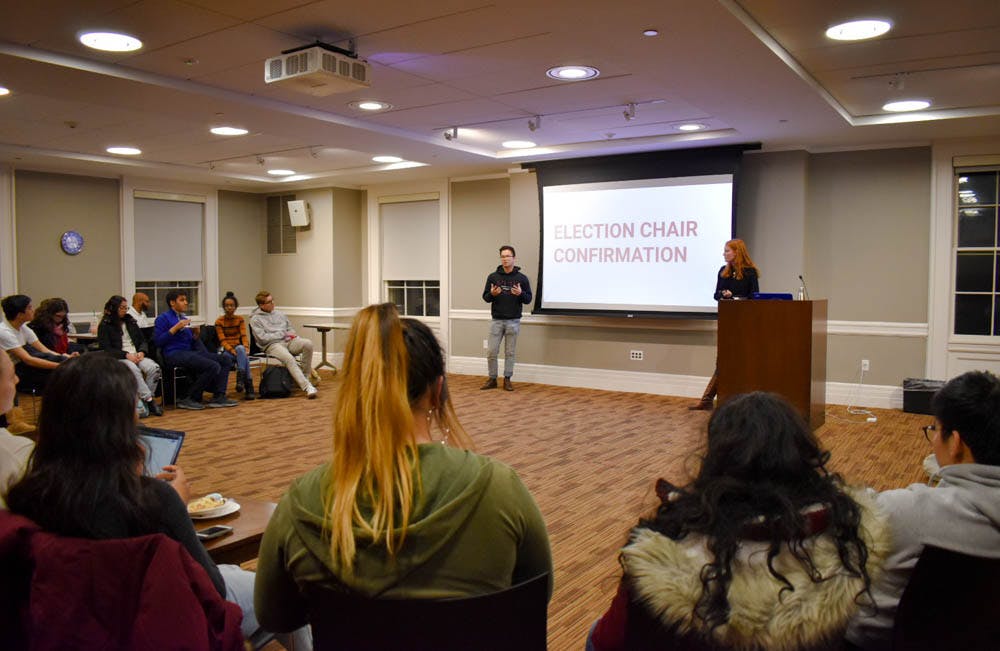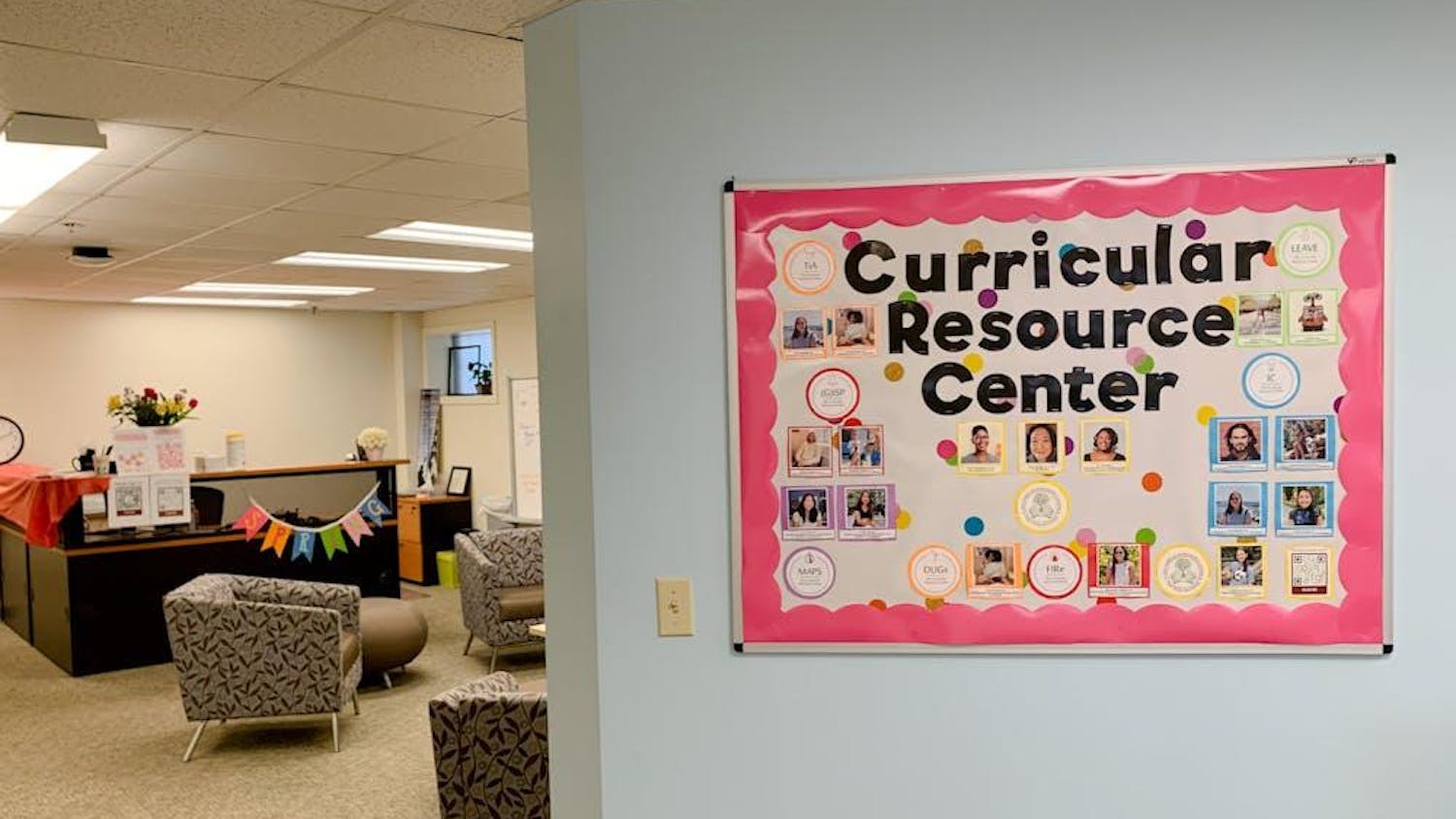The Undergraduate Finance Board announced three policy changes and a plan to release how much money it allocates to each student group, said UCS-UFB Liaison Ellis Clark ’23 at Wednesday night’s Undergraduate Council of Students meeting.
A new yearlong pilot policy will extend baseline funding to $600 from $200 per semester for Category III cultural/ethnic and religious student groups, such as the Black Student Union, Muslim Students Association and the South Asian Students Association. Category III is the highest categorization status student groups can achieve. The new policy aims to alleviate difficulties these groups face in obtaining funding for food from UFB, Song said.
For performance groups, UFB will now consider funding up to $1,800 a semester to purchase the rights for shows. Finally, a new policy will provide up to $5 per person for food at events dedicated to breaking fast.
When the Board releases student group funding data, it will also explain why the highest funded groups receive their budgets, said Chair of Student Activities Alex Song ’20. UFB is “anticipating backlash on what’s revealed,” he said. Clark agreed, adding that there might be backlash “because everyone will be able to go in and see how much money we give groups.” The Board funds 250 student groups with a budget of about $2 million.
Also during the meeting, Co-Chairs of Appointments Sam Caplan ’22 and Eamon McKeever ’22 asked general body members for input on student appointments to the University working group that will advise revisions to the Advisory Committee on Corporate Responsibility in Investment Policies. The committee “considers issues of ethical and moral responsibility in the investment policies” of the University, according to its website.
The working group will have four undergraduate appointees, McKeever said. McKeever will serve in one of those spots as a UCS representative, and another slot will be a rotating position for students who currently serve on ACCRIP, he said.
“The people on this group are going to have a lot of impact in terms of how the new ACCRIP or investment group reviews policies (and) recommends policies,” Caplan said. “Eamon and I felt that this wasn’t something that we could unilaterally decide … so we wanted to get feedback from the general body” on the values and experiences student representatives to the working group should have.
McKeever and Caplan also invited general body members to join in on interviews for the position, which are set to take place today.
“We recognize the limits to our own knowledge and authority to make this decision, and we really want this to be as representative of a choice as it can be,” Caplan added.
Chair of Student Wellness Shivani Nishar ’20 raised concerns that certain demographics of students might be excluded from the working group because they lack pre-existing knowledge on ethical investment policy.
Caplan said that a background in investment policy would only be used to “contextualize” applicants rather than “qualify or disqualify” them. “We’re looking for people who value student voice and have a passion for investing in a change like this,” he added.
The Council also voted to confirm Song and Mary Stack ’21 as its elections board co-chairs.
Song, who has served on the elections board for two years, said that he hopes the board can take a more “active” role in UCS and UFB’s spring elections by revamping its online presence and making resources for potential candidates more accessible. The board has historically taken a “pretty passive” role in overseeing the annual elections, he said.
Stack said she would be open to altering the length of elections, which typically occur over a one-week period. Song added that the board could discuss moving the elections time line earlier in the semester to allow elected students the opportunity to shadow UCS members or gain greater familiarity with the Council.
The Council also discussed a potential new bylaw that would designate a UCS student liaison on University committees to “facilitate more information sharing,” McKeever said.
Currently, UCS appoints student representatives to University committees, such as the Residential Council and Dining Council, but the students are not required to report to UCS. Under the new bylaw, one student representative per committee would also be required to maintain regular communication with UCS.
If the bylaw is approved by the general body, the liaison responsibilities would not be implemented retroactively to students already appointed to University committees, Caplan said. Instead, the role would be phased in as new students are appointed each semester.
Chief of Staff Melissa Lee ’20 said the UCS liaisons should communicate with the entire general body, not just the relevant UCS committee chairs, and that the liaisons should prioritize sharing information not generally accessible to the broader student body.
UCS President William Zhou ’20 suggested that the UCS liaisons could also submit written summaries of their University committee activities.
“Eamon and I see this bylaw as the beginning of a greater cultural change of streamlining communication” and reducing the distance between UCS and University committees, Caplan said.





